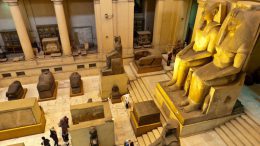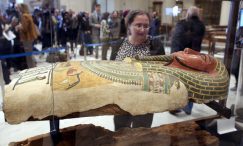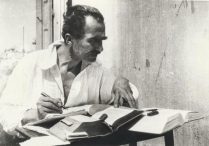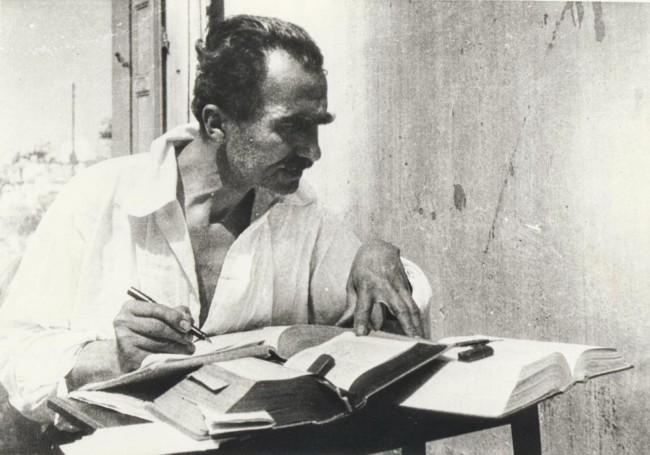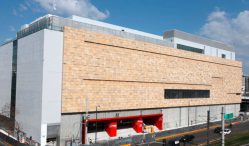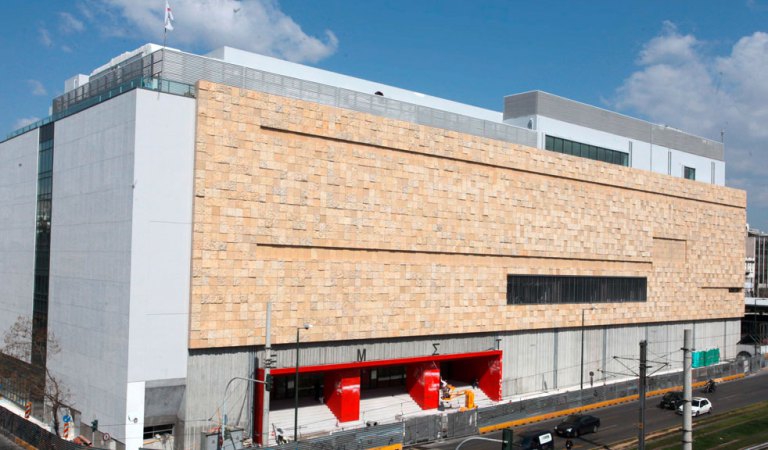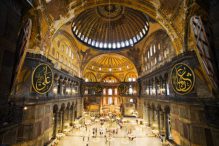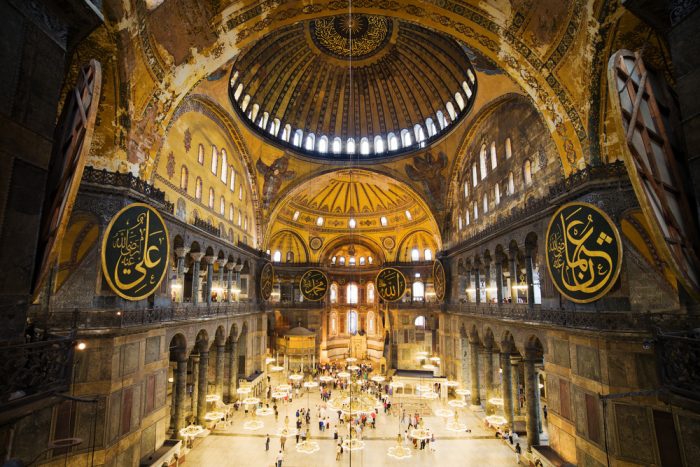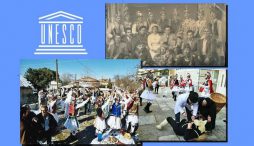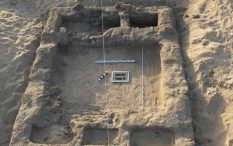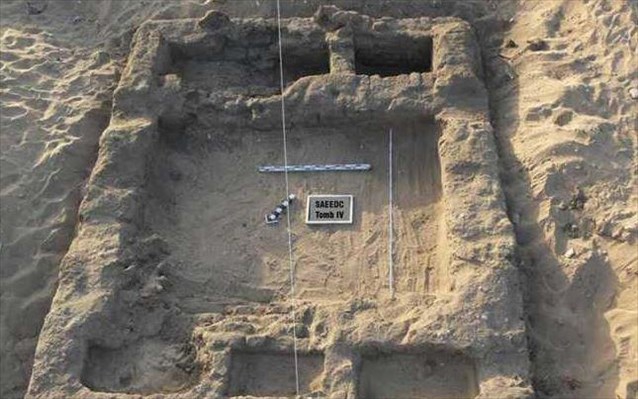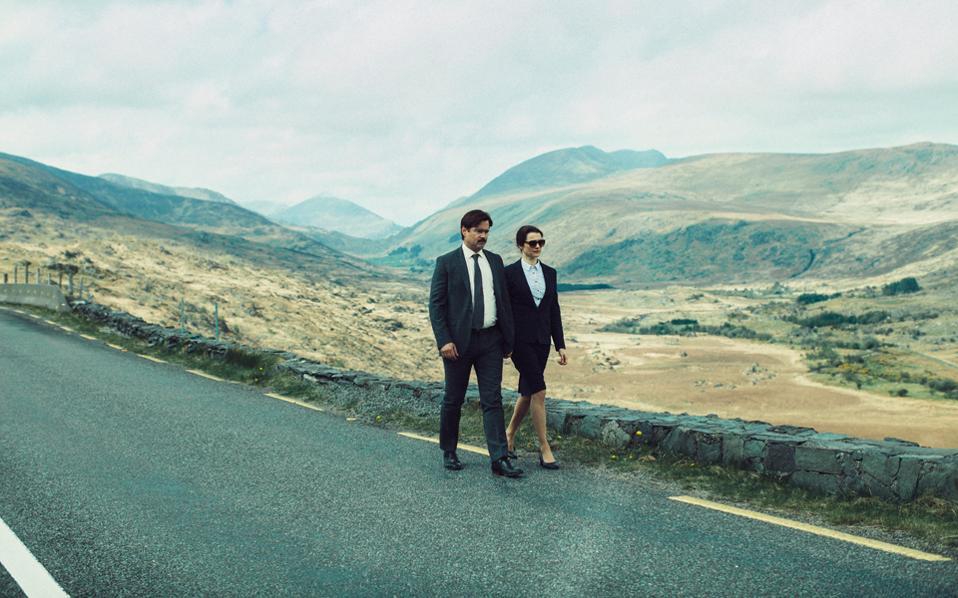 Thessaloniki International Film Festival (TIFF) is one of the oldest and most reputable cinema events in Southeast Europe. On the occasion of TIFF’s 57th edition (3-13.11.2016) Festivalists “online playform for independent film criticism”, published a report by Lydia Papadimitriou* that provides an overview of the verve behind recent processes in the Greek film industry (Original title: Continuity and change)**:The poster of the 57th Thessaloniki International Film Festival was bold and monochromatic. Large black capital letters, partly concealed multiple repetitions of the festival’s name and edition, against a white background. The effect was dynamic, underlining strength and simplicity, while also suggesting a sense of continuity and origin.
Thessaloniki International Film Festival (TIFF) is one of the oldest and most reputable cinema events in Southeast Europe. On the occasion of TIFF’s 57th edition (3-13.11.2016) Festivalists “online playform for independent film criticism”, published a report by Lydia Papadimitriou* that provides an overview of the verve behind recent processes in the Greek film industry (Original title: Continuity and change)**:The poster of the 57th Thessaloniki International Film Festival was bold and monochromatic. Large black capital letters, partly concealed multiple repetitions of the festival’s name and edition, against a white background. The effect was dynamic, underlining strength and simplicity, while also suggesting a sense of continuity and origin.
This was the first edition under the new leadership of Élise Jalladeau as General Director and Orestis Andreadakis as Artistic Director. The Opening ceremony pointed to their vision to bring a forward-looking energy to the festival without altering its core identity. Taking place a day earlier than the usual Friday start, the two directors’ speeches underlined the embrace of the past, the journeys of discovery, the challenges of the future. The Opening night culminated with a screening of Jim Jarmusch’s Paterson (2016), reasserting the festival’s continuing commitment to independent cinema, while also reminding us of the iconic American director’s visit to the festival three years ago.
So what were the innovations in this year’s edition? Like the addition of an extra hidden ingredient in a recipe that already works, as Andreadakis put it to me, they were small and subtle, but nonetheless detectable by the discerning palate. Some new programme sections cropped up: Mirror/Image coupled titles dealing with the same topic and 2 or 3 Things I Know About Her presented films by women about women. While such ephemeral sections reflected curatorial responses to this year’s crop, the parallel, non-competitive Greek Film Festival that showcased the majority of Greek productions of the year was here to stay. The Youth Jury Award for Best Feature Film was given to Sotiris Tsafoulias’ crime drama The Other Me / Eteros Ego (2016), aiming to restore the audience’s faith in Greek cinema as the film blends artistic quality with commercial potential. A number of specially subtitled and/or audio-described screenings – a novelty for the festival – widened accessibility for hard-of-hearing and visually impaired spectators.
Thessaloniki is also very active behind the scenes. Since 2000, its Agora sidebar has become a regional and national hub for professionals to network and seek opportunities for funding, development, and distribution. New awards, incentives, and initiatives were introduced this year. The EURIMAGES Lab Project Award for unconventional projects (50 000 EUR) was added to the existing Agora Works in Progress prizes. The regional emphasis of the Crossroads Co-production Forum that gives prizes for development and co-productions was complemented by the activities of the SEE Cinema Network. And there was a brand new initiative too, the Locarno Industry Academy International in Thessaloniki – a program for training young sales agents, distributors, and new media professionals.
For all these additional “spices” that made the festival somehow different this year, we should not disregard its main ingredients – the excellent films that consistently led to sold-out screenings.What follows discusses some of the highlights I savored during my short stay in Thessaloniki.
From the festival’s International Competition (for directors’ first or second films), I thoroughly enjoyed two loosely autobiographical films from the Nordic countries, Guðmundur Arnar Guðmundsson’s Hearstone / Hhartasteinn (2016) and Amanda Kernell’s Sami Blood / Sameblod (2016). Set in a fishing village in Iceland similar to where its 34-year-old director grew up, HEARTSTONE is a coming-of-age story of two boys whose divergent sexuality tests the boundaries of friendship. Inspired by the story of the director’s grandmother, SÁMI BLOOD follows a young woman from Lapland in the 1930s, as she revolts against the ingrained racism of Swedish society and tries her luck in the city. Dissimilar in visual texture, narrative tone, and thematic emphasis, both films are about growing up, and they both make for compulsive and emotionally touching viewing.
Another highpoint from the competition was the French/Greek/Algerian coproduction I still hide to smoke / À mon age je me cache encore pour fumer (2016) by Rayhana, a theatrically conceived, but also engrossing and politically astute feminist story that puts into sharp relief tensions that emerge from the clash of religious and secular cultures in a post-9/11 world. Shot (and mostly set) in Thessaloniki’s historic Bey Hammam, it may be no coincidence that it also won the Audience Award at the festival.
Among Greek films, three also participated at the International Competition: Yannis Sakaridis’ realist melodrama Amerika Square / Plateia Amerikis (2016), Sofia Exarchou’s San Sebastián winner Park (2016), and Stergios Paschos’ low-fi post-breakup comedy Afterlov (2016). Of these, my personal favorite was Amerika Square, a dynamically paced, well crafted, raw but also sensitive story set within a racially tense, multicultural neighborhood of Athens, that dramatizes effectively aspects of the recent (and not-so-recent) refugee and immigration crises. Visually and conceptually – rather than narratively – driven, PARK is set in the abandoned Olympic village, now ephemerally inhabited by drifting youths, offering limited, if any, hope for escape. Finally, while keeping the two characters locked in an Athenian villa for its duration, the mumblecore-like Afterlove, with its static shots and dialogue-driven emotional pyrotechnics, will likely manage wider appeal among young audiences.
From the non-competitive Open Horizons section, my highlight was Ivan I. Tverdovsky’s Zoology / Zoologiya (2016) – a confidently told, semi-absurd but highly convincing parable about a middle-aged woman in a provincial Russian town who has grown a long tail. Offering stinging social critique, but celebrating difference while also pointing to the difficulties of non-conformity, this is very insightful modern fairy tale, presented in alternating light and dark narrative tones. From the same section, Christopher Murray’s ethnographically inspired The blind Christ / El Cristo ciego (2016) is about a self-professed Messiah who takes to the Chilean desert to find and heal an injured friend. Based on stories and beliefs held among the materially deprived inhabitants of Northern Chile, the film’s take on religion is open-minded, while its portrayal of the local people – a number of which appear in the film – is both powerful and sensitive. I also watched Gabe Klinger’s Porto (2016), a three-part story of an exquisite one-night stand. Narratively adventurous, as it tells (parts of) the story through three perspectives, the girl’s, the boy’s, and the couple’s, it is rewarding as an exploration of the power of attraction, but offers few insights to the culture of the city from its title.
Last but not least is the Balkan Survey, a non-competitive section that gives the festival a regionally distinctive character both through retrospectives and new films. This year’s tribute was dedicated to Turkish director Zeki Demirkubuz whose stories of people caught into impossible situations are among the best examples of New Turkish cinema, and deserve further attention. From the new Balkan films, I watched Serbian actress Mirjana Karanović’s directorial debut A Good Wife / Dobra Zena (2016), a well-paced story of a middle-aged woman faced with her husband’s atrocities during the Bosnian war. Raising questions about complicity and redemption, the film covers familiar ground in terms of subject matter, yet has the potential to reach wider audiences due to its star-director’s popularity. The Bulgarian Glory / Slava (2016) by Kristina Grozeva and Petar Valchanov focuses on a rail worker who finds a bag full of money and chooses to do the right thing, by returning it to the authorities. The film presents a potent parable about corruption and moral choices while also exposing the hypocrisy of the political and media establishment.
Finally, I was very pleased not only to catch Ana-Felicia Scutelnicu’s debut Anishoara (2016) in the Balkan Survey line-up, but also to meet the young Moldovan director in Thessaloniki and discuss her work. A poetic tale of a girl’s transition into womanhood, the film (named after the main actress and protagonist) is structured around four seasons, and focuses as much on the changing countryside as on the young woman’s gradual maturation. Episodic and sensuous rather than narratively driven, this is a film for the large screen, as the camera lingers on the faces of its non-profession actress and the beautiful landscapes, enticing contemplative feelings through its well-toned visual textures. It took four shooting trips to her home country, Moldova (north-east of Romania), and three DoPs, for the young director who now lives and works in Germany to collect the footage for her graduation film. Just like her young character and protagonist – and most characters in the film – Scutelnicu has left her home country in search of better opportunities. That we can still enjoy the world she left behind through her vision is one of the many rewards that films and festivals can offer, and we are grateful.
(www.greeknewsagenda.gr)
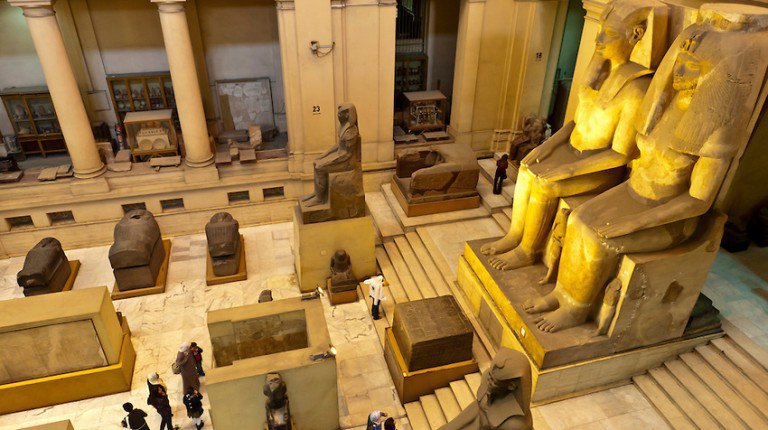 The Ministry of Antiquities’ affiliated museums have achieved total revenues of $45m with 974,400 visitors in 2016.
The Ministry of Antiquities’ affiliated museums have achieved total revenues of $45m with 974,400 visitors in 2016.